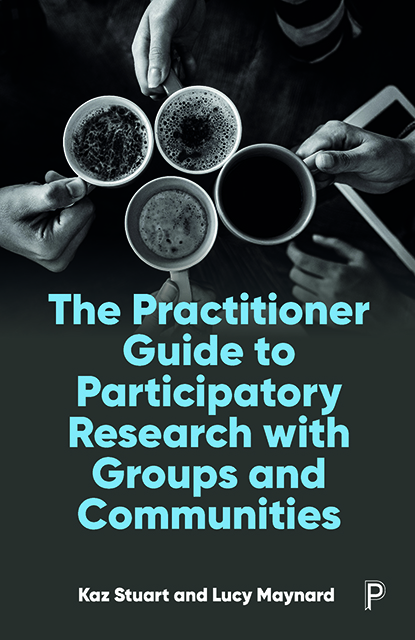Book contents
- Frontmatter
- Contents
- List of Figures and Tables
- Glossary
- About the Authors
- Acknowledgements
- Foreword
- Foreword
- Introduction
- 1 Just What is Participatory Research?
- 2 How do We Begin to Plan Our Participatory Research Project?
- 3 What Do We Want to Explore and Why?
- 4 What Ideas are the Foundations of Our Research?
- 5 How Will We go About Exploring Our Questions?
- 6 Who Can Get Involved to Explore Our Questions?
- 7 How Shall We Collect Our Data?
- 8 What Do We Do With Our Data?
- 9 How Do We Get Our Messages Out There?
- 10 How Do We Keep Everyone Safe?
- 11 Doing and Reviewing Participatory Research
- Conclusion
- References
- Index
10 - How Do We Keep Everyone Safe?
Published online by Cambridge University Press: 21 June 2023
- Frontmatter
- Contents
- List of Figures and Tables
- Glossary
- About the Authors
- Acknowledgements
- Foreword
- Foreword
- Introduction
- 1 Just What is Participatory Research?
- 2 How do We Begin to Plan Our Participatory Research Project?
- 3 What Do We Want to Explore and Why?
- 4 What Ideas are the Foundations of Our Research?
- 5 How Will We go About Exploring Our Questions?
- 6 Who Can Get Involved to Explore Our Questions?
- 7 How Shall We Collect Our Data?
- 8 What Do We Do With Our Data?
- 9 How Do We Get Our Messages Out There?
- 10 How Do We Keep Everyone Safe?
- 11 Doing and Reviewing Participatory Research
- Conclusion
- References
- Index
Summary
Chapter overview
This chapter will provide an overview of how to keep participants and co-researchers as safe as possible through ‘research ethics’. The principles and practicalities of different ethical considerations will be discussed and the particular challenges of participatory research raised.
What are research ethics?
Research ethics are a set of principles that have been developed to keep researchers and the people they research safe – physically, mentally and emotionally. We take many principles for granted nowadays, but they have developed from examples of unethical research in the past. We would never now think of stealing data, but many First Nations communities have had their data stolen without their consent in the past. We would think it terrible to deceive participants in a study, but that did happen in the past in some experiments on human behaviour. Thankfully, as a result of these, we now have a better understanding of and a commitment to ethical research.
Research ethics are often written as sets of statements or principles and the task in research design is to ensure that they can all be met within the research project before it commences. The process is rather like a risk assessment, with the researchers thinking through the risks posed under each ethical principle and how to avoid or limit risk and damage. Sometimes someone in an organisation will approve the ethical plans before the work can start. This would be the case for research led by a university or a health care trust. Some sectors do not have their own ethical committee but may still have research ethics, for example there is a set of educational research ethics in Britain to guide research design in schools, but no central ethical approval system for teachers. Whether you need ethical approval or not, you still need to identify and manage as many ethical issues as possible before the project commences. In a participatory project this would be done with the co-researchers as part of the co-design process.
One of the difficulties of participatory research is its organic developmental nature. The researchers may not know the exact terms of the project before working with the co-researchers.
- Type
- Chapter
- Information
- Publisher: Bristol University PressPrint publication year: 2022



